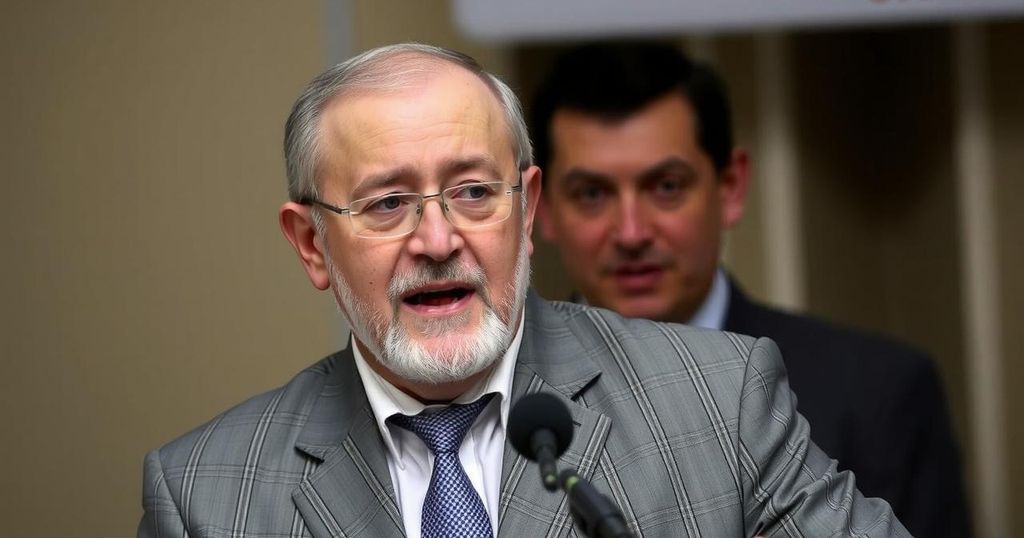Syria’s Elections Could Be Delayed for Four Years, Interim Leader States

Ahmad al-Sharaa, Syria’s interim leader, announced elections may be delayed for up to four years as his government focuses on rebuilding infrastructure and drafting a new constitution. His recent international diplomatic engagements reflect a shift towards seeking legitimacy and establishing new relations, particularly with Saudi Arabia and Ukraine, amid ongoing discussions about the future of HTS and preparations for a National Dialogue Conference.
In a significant announcement, Ahmad al-Sharaa, the de facto leader of Syria’s interim government, indicated that elections could be postponed for up to four years. This timeline comes in light of his group, Hayat Tahrir Al-Sham (HTS), having recently overthrown the Assad regime. Al-Sharaa emphasized the necessity of infrastructure preparation and the drafting of a new constitution, which may take as long as three years. He stated, “We are now in the re-foundation of the country and not just managing the country,” highlighting the extensive damage inflicted by over five decades of Assad’s governance. Additionally, he asserted that HTS will eventually be dissolved, with this transition to be discussed at a forthcoming National Dialogue Conference, the date of which remains unspecified.
On international diplomacy, al-Sharaa received a Ukrainian delegation led by Foreign Minister Andrii Sybiha, emphasizing shared experiences between Syria and Ukraine. Moreover, the U.S. has lifted a bounty on al-Sharaa, demonstrating a shift in policy aimed at addressing critical issues like terrorism. Al-Sharaa expressed a desire for Russia to maintain a favorable relationship with Syria, despite reports of Russian military withdrawals. Furthermore, he is actively seeking international legitimacy and has been adjusting his public persona from his past as a jihadist leader, engaging with various global diplomats and regional powers, notably Saudi Arabia, which he views as integral to Syria’s future.
The current political landscape in Syria has undergone a drastic transformation following the overthrow of Bashar al-Assad’s regime by the Islamist group Hayat Tahrir Al-Sham (HTS). Ahmad al-Sharaa, also known as Abu Mohammad al-Jolani, has emerged as a pivotal figure in the new interim leadership. Given the historical context of Assad’s long rule, the nation faces considerable challenges that necessitate substantial constitutional reforms and infrastructural development. Moreover, al-Sharaa’s strategic engagement with both international and regional entities is essential for securing legitimacy and stabilizing the transitional governance structure.
In summary, the future of elections in Syria remains uncertain with a potential delay of up to four years. Ahmad al-Sharaa’s leadership is characterized by an emphasis on rebuilding the state and drafting a new constitution while engaging with diverse international stakeholders. His diplomatic efforts, particularly after the lifting of his U.S. bounty, indicate a shift towards gaining international recognition and forging crucial alliances, especially with Saudi Arabia and other regional powers.
Original Source: www.cnn.com








